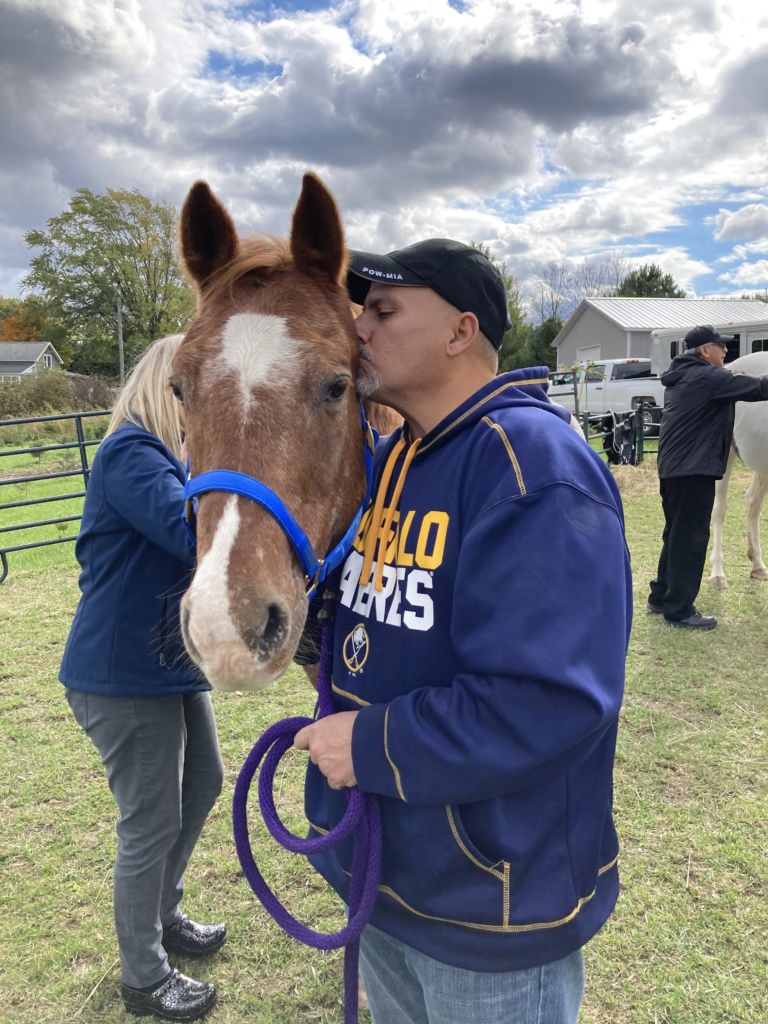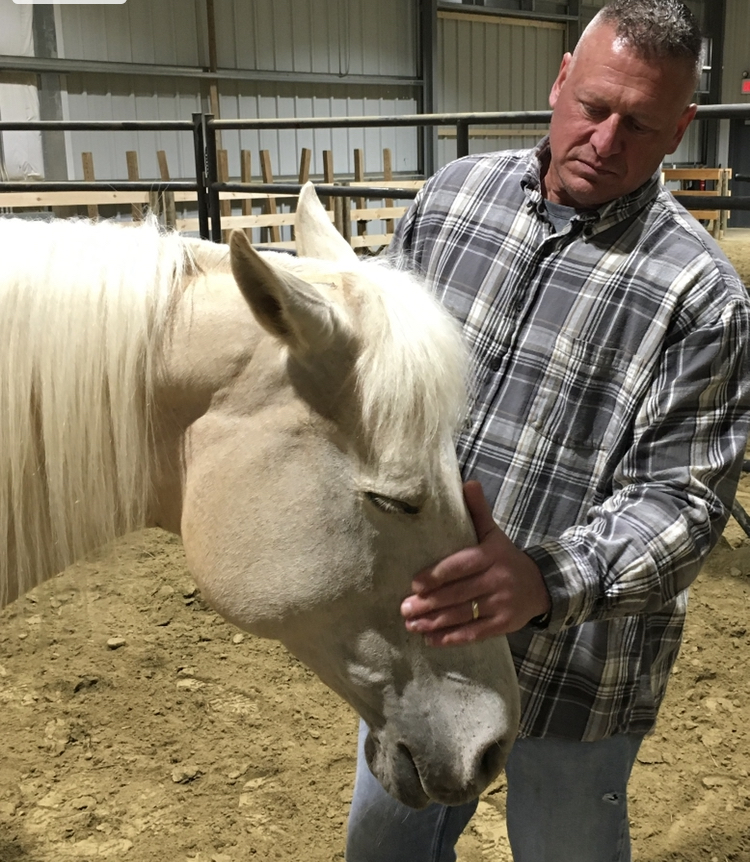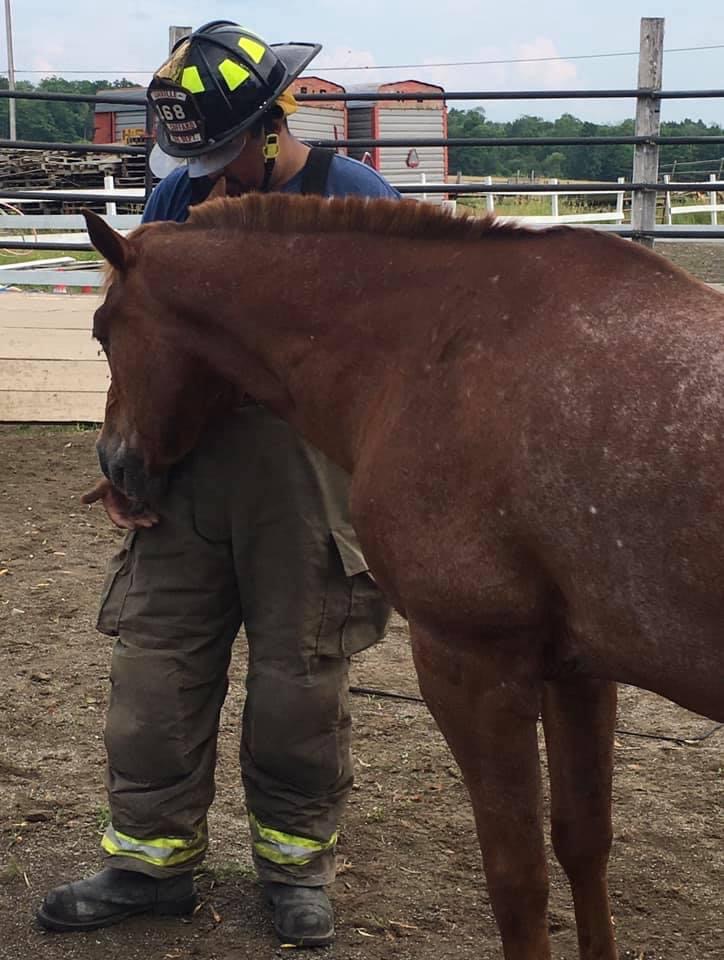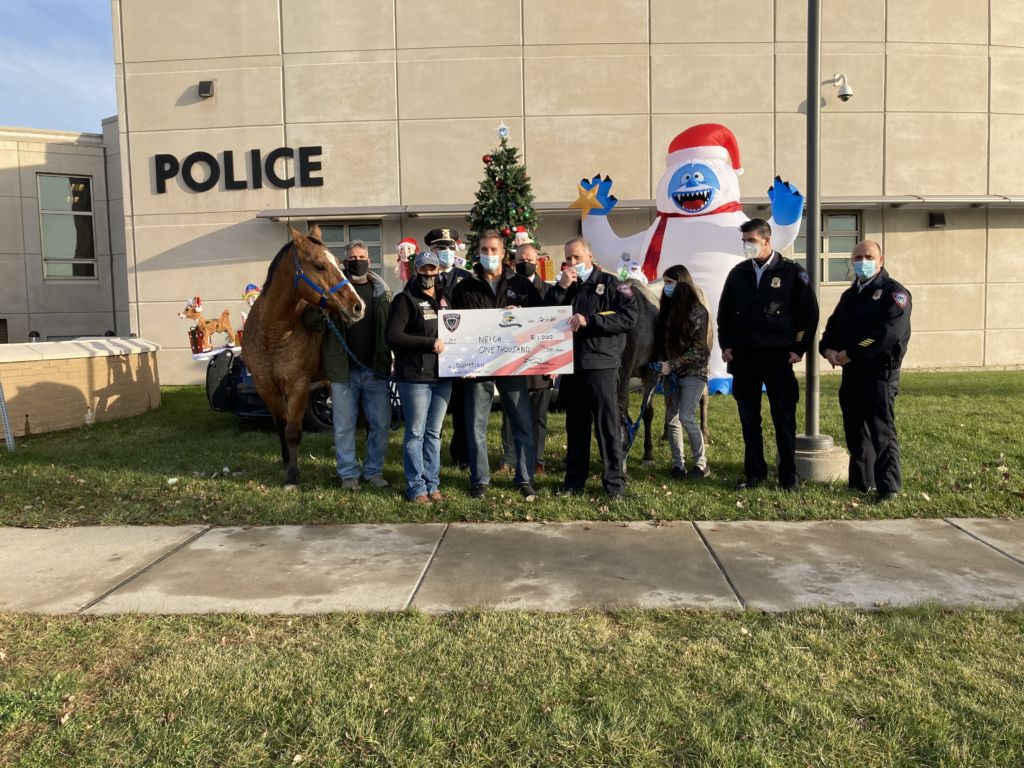By: Dawn Samualson
 As he walked toward the 1,200 pound horse, he could feel his heart beating faster with every step! He had never been this close to a horse before, admittedly, it was very intimidating. “As you approach the horse, observe her head. If it tips away, stop, and take a step back,” says Dawn. “You are communicating to her in a way she understands, non-verbal. By doing this, she understands that you respect her space. You as a predator and she as a prey animal makes for a naturally difficult interaction. The ability to communicate that you value her personal boundaries and are willing to take the time to gain her trust makes her understand that you are not a threat.”
As he walked toward the 1,200 pound horse, he could feel his heart beating faster with every step! He had never been this close to a horse before, admittedly, it was very intimidating. “As you approach the horse, observe her head. If it tips away, stop, and take a step back,” says Dawn. “You are communicating to her in a way she understands, non-verbal. By doing this, she understands that you respect her space. You as a predator and she as a prey animal makes for a naturally difficult interaction. The ability to communicate that you value her personal boundaries and are willing to take the time to gain her trust makes her understand that you are not a threat.”
The first blockade needed to overcome before communicating with someone is understanding empathy. It is best explained by the Empathic cascade: EMPATHY CONVEYS UNDERSTANDING, UNDERSTANDING FOSTERS TRUST, AND TRUST FACILITATES COMPLIANCE. Without empathy, compliance will not be achieved. As an ICISF member, Chautauqua County CISM team member, Chautauqua County Mobile Crisis worker, 30-year firefighter, and former EMT, I understand the camaraderie within the field of work. That knowledge gave me a foundation for success with my program.
 I am the Founder and Executive Director of the National Equine Institute of Growth through Healing, Inc. (NEIGH, Inc.), a 501 (c)(3) non-for-profit organization offering Equine Assisted Learning and Psychotherapy for veterans and first responders suffering with PTSD, anxiety, depression, and suicidal thoughts. I have learned to approach most people that have experienced trauma in much of the same way. Listen, observe, and respect!
I am the Founder and Executive Director of the National Equine Institute of Growth through Healing, Inc. (NEIGH, Inc.), a 501 (c)(3) non-for-profit organization offering Equine Assisted Learning and Psychotherapy for veterans and first responders suffering with PTSD, anxiety, depression, and suicidal thoughts. I have learned to approach most people that have experienced trauma in much of the same way. Listen, observe, and respect!

Many of the clients I work with are veterans, law enforcement, firefighters, and emergency personnel. The resources and support gained from training with the ICISF have been strengthened, not only by the work done with the Chautauqua County CISM team, but in my day-to-day training and therapy with those who experience cumulative effects from trauma or singular horrific incident encounters. What I have observed with these groups that have a unique culture feel many times misunderstood and lack trust to those outside the group, tend to internalize the trauma they have encountered for fear of feeling weak, lack of time between calls, or inability to process in a healthy manner. The unique effect of a nonjudgmental, black and white thinker (fight/flight), such as a horse, aids in the ability to help the participant to recognize and take ownership in their behavior, instantly. This instills a sense of being able to solve problems for oneself with the tools and strategies gained with the team of horse and facilitator. This ultimately fosters hope and healing.

The increased need for referrals to mental health professionals, trauma informed care programs, such as Equine Assisted Therapy, EMDR, and other therapy, is needed beyond the initial CISM encounter for some members. I have witnessed the magic of the horse in healing or preparing participants by building resiliency prior to the horrific event first-hand. Many first responders spend hours, days, and weeks training for incidents that may occur, but very little training is given or utilized to prepare these much-needed heroes for the mental anguish, anxiety, or cumulative stress that they will face for years in such careers. It is my mission to decrease the suicide rate, increase the mental resiliency, and foster hope for so many hard working first responders in our nation. Together we can change the stigma! The NEIGH,Inc. and the Beyond the Call Equine Assisted Services is a powerful start.
